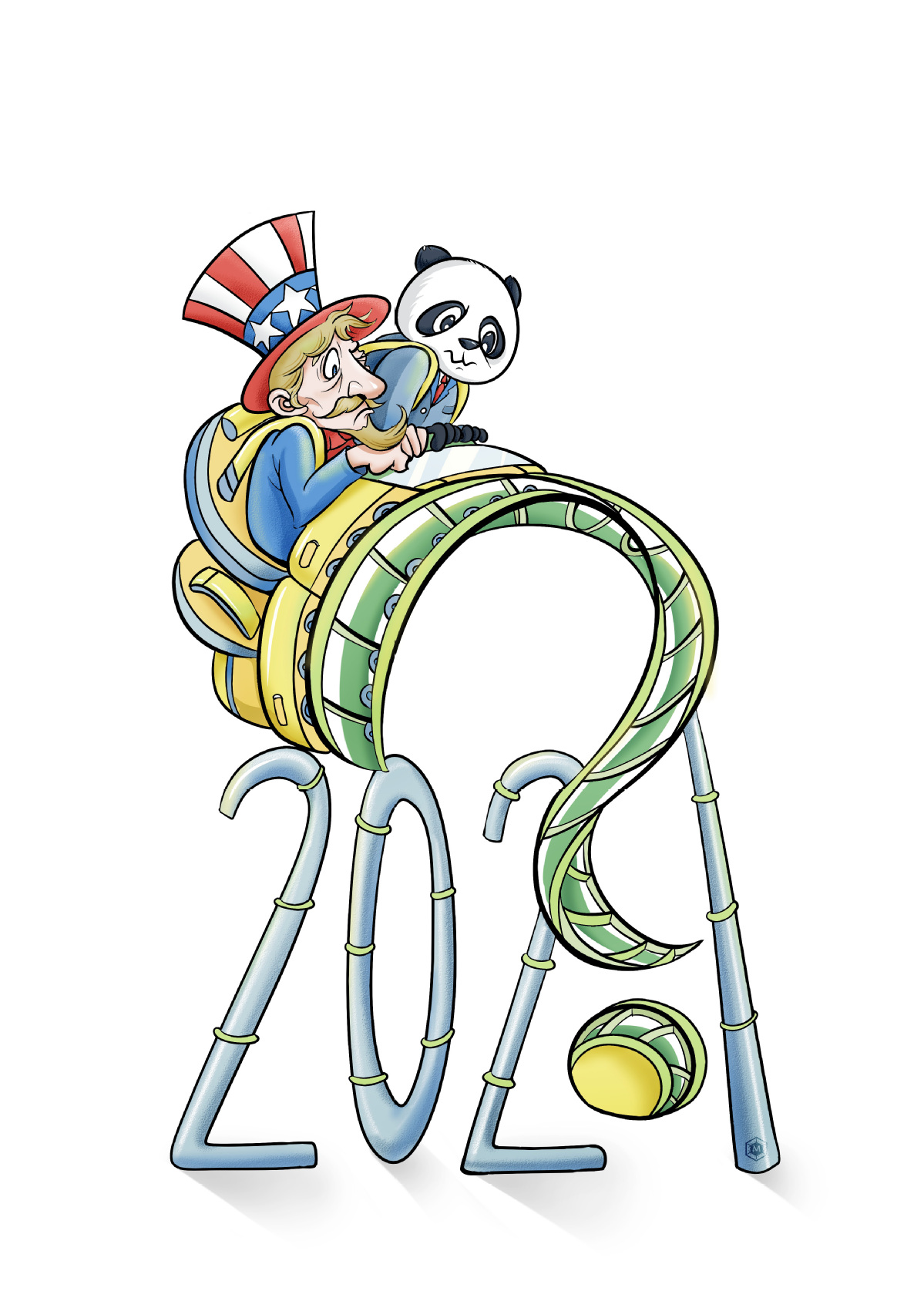Wisdom and courage can help thaw Sino-US ties
By He Weibao | China Daily | Updated: 2020-12-28 07:10

Sino-US relations have deteriorated at an unprecedented pace over the past nearly four years thanks to the Donald Trump administration's "America first" policies. Hopefully, the incoming US administration of Joe Biden will take steps to reverse this trend.
Sino-US ties face both opportunities and challenges, especially because the incumbent US administration has claimed that its efforts to engage with China failed and international relations today are all about competition between major powers-and that's why the United States sees China as a strategic and ideological rival.
But the fact is that the current US administration has done everything possible, even tried to trigger a new Cold War, to contain China's rise. And despite China exercising exemplary restraint in the face of the US' unilateral, disruptive moves, Sino-US ties have hit a new low. As Chinese Ambassador to the US Cui Tiankai said in October, China-US relations have experienced "severe difficulties rarely seen in the past 41 years".
Since Biden has the experience of working with China, especially as US vice-president during Barack Obama's presidency, many say he will likely improve bilateral relations after being sworn in as president next month. That being said, the future course of Sino-US relations will depend on the new administration's China policy.
Judging from Biden's presidential campaign and the Democratic Party's 2020 platform, Biden may only partly, not entirely, change the Trump administration's China policy. More importantly, Democrats and Republicans have reached a consensus that China has narrowed the gap with the US, so dealing with it has become the top challenge for the US. In fact, in an interview in October, Biden said Russia is the US' "biggest threat" and China the "biggest competitor".
This means China and the US will continue to share a competitive relationship.
Human rights are another contentious issue that could affect Sino-US relations. The Trump administration has been interfering in China's internal affairs, and has even criticized the Communist Party of China and Chinese institutions. The US has also intensified the ideological conflict with China, poked its nose in China's domestic affairs, including in matters pertaining to the Hong Kong Special Administrative Region, the Xinjiang Uygur autonomous region and the Taiwan question.
And since Biden has reiterated the Democratic Party's commitment to values such as freedom, democracy and human rights, his administration's dealings with China may not be very different from that of the Trump administration. This is to say, Biden is unlikely to reverse Trump's China policy and, as a result, disagreements between the two sides over values may continue.
Trump has imposed political restrictions and created technological barriers against Chinese high-tech companies to ensure the US remains the global leader in the field of advanced technology. And although Biden may not implement new anti-China measures or continue with Trump's anti-China high-tech policy, he may increase investments in high-tech to maintain the US' global leadership in the field. As such, the two sides' competition in high-tech could intensify.
But since Biden is opposed to the Trump-triggered trade war-which incidentally has backfired on the US-and a new Cold War, he may take measures to ease Sino-US tensions and is likely to adopt a more cautious approach when it comes to sensitive issues such as the Taiwan question, which could help improve bilateral ties.
Different from the capricious and self-centered Trump, Biden is known to respect the world order and international rules and values, and therefore is expected to ensure the US, as a superpower, fulfills its global responsibilities. He is also expected to return to multilateralism, and rejoin the Iran nuclear deal and the Paris Agreement.
Given these possibilities, Sino-US ties are likely to stabilize during Biden's presidency.
The US president-elect has promised to not only boost the US economy, and better safeguard national security and human rights but also work with China to address global challenges including climate change and nuclear nonproliferation. Beijing and Washington may also cooperate in the global fight against the COVID-19 pandemic.
However, Biden could create new challenges for China. He has criticized Trump for alienating US allies, saying that while strengthening cooperation and coordination with the allies, his administration will try to reach a consensus with them on how to deal with a rising China. So China should be prepared to overcome such challenges.
Last month, President Xi Jinping congratulated Biden for winning the presidential election, and said he hoped Sino-US relations will improve under his presidency to the benefit of both Chinese and American peoples, as well as the international community.
If the two countries exhibit mutual respect, work together to resolve global and common issues, and properly manage bilateral disputes during Biden's term, Sino-US ties will return to the right track.
The views don't necessarily represent those of China Daily.
The author is an associate research fellow at the Institute of American Studies, Chinese Academy of Social Sciences.
If you have a specific expertise and would like to contribute to China Daily, please contact us at opinion@chinadaily.com.cn , and comment@chinadaily.com.cn
























